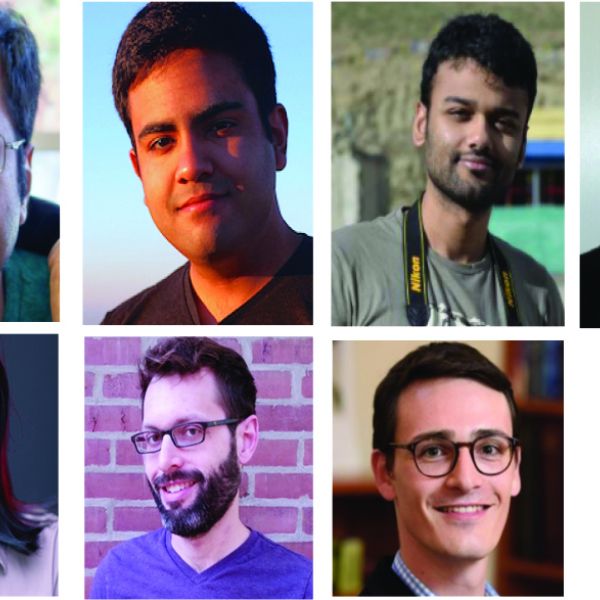Cornell Computing and Information Science has announced the hiring of seven new faculty members to join the Ithaca and Cornell Tech campuses. With research and teaching experience in machine learning, human-robot interaction, complexity theory, and social and cultural effects of interactive technologies, these new CIS faculty are facilitating integrated research and learning across computer science fields. “These new faculty are the very best in their fields, and we are thrilled to have them come to Cornell,” said CIS Dean Greg Morrisett. In addition to the new hires listed below, CIS will also welcome three faculty hired in 2016-17: Assistant Professor Anil Damle in Computer Science and Assistant Professors Solon Barocas and Jeff Rzeszotarski in Information Science.
Computer Science Department:
Austin Benson will join Cornell Computer Science as an Assistant Professor in Fall 2018 after completing CS postdoctoral work at Cornell this year. His research develops computational frameworks for analyzing large-scale and complex datasets coming from the Web, social networks, biology, and other scientific domains. His paper, “Higher-order Organization of Complex Networks,” was recently published in Science. Benson is a recent PhD graduate of Stanford University and spent two summers working at Google.
Eshan Chattopadhyay will join Cornell Computer Science as an Assistant Professor in Fall 2018 and will complete his postdoctoral work at the Institute for Advanced Study in Mathematics at Princeton University. He spent his spring semester as a Microsoft Research Fellow in the Pseudorandomness program. His research interests are in complexity theory, pseudorandomness and cryptography. He received his PhD in computer science from the University of Texas-Austin.
Chris De Sa will join Cornell Computer Science this fall as an Assistant Professor. His research interests include algorithmic, software, and hardware techniques for high-performance machine learning that are efficient, parallel and distributed. De Sa holds a MS and PhD in Electrical Engineering from Stanford University. He has presented papers recently at the Int. Symposium on Computer Architecture (ISCA) and the Neural Information Processing Systems Conference (NIPS).
Bharath Hariharan will be welcomed to Cornell CS this fall as an Assistant Professor. He has worked most recently as a postdoctoral student at Facebook AI Research. Hariharan received his PhD from the University of California-Berkeley. His research interests are computer vision and machine learning, and he has a paper in review on “Low-shot learning with large-scale diffusion.” He is presenting two papers this fall at the International Conference on Computer Vision.
Information Science:
Kyle Harms is a welcome addition to the Department of Information Science this fall as a lecturer. He has enjoyed teaching Human-Computer Interaction Methods and Data Structures and Algorithms at Washington University in St. Louis, where he received his PhD. Harms previously worked as a software engineer for The Boeing Company. He has developed an open-source novice programming environment for middle-school children called Looking Glass.
Wendy Ju will join the Jacobs Technion-Cornell Institute at Cornell Tech as an Assistant Professor. She was most recently Executive Director for Interaction Design at the Center for Design Research at Stanford University. Her work in the areas of human-robot interaction and automated vehicle interfaces highlights the ways that interactive devices can communicate and engage people without intruding or interrupting. Ju completed her PhD in mechanical engineering from Stanford. Her monograph on The Design of Implicit Interactions was published in 2015.
Rene Kizilcec will join the Cornell IS Department in Fall 2018. He is currently the Director of Digital Learning Research and co-founder of the Lytics Lab at Stanford University, where he received his PhD. His research is on social and cultural psychological factors in interactive technologies and his work has been published in leading journals such as Science, Proceedings of the National Academy of Sciences, and Computers & Education. His research has been awarded an ACM Best Paper Award and a Computational Social Science Fellowship.



